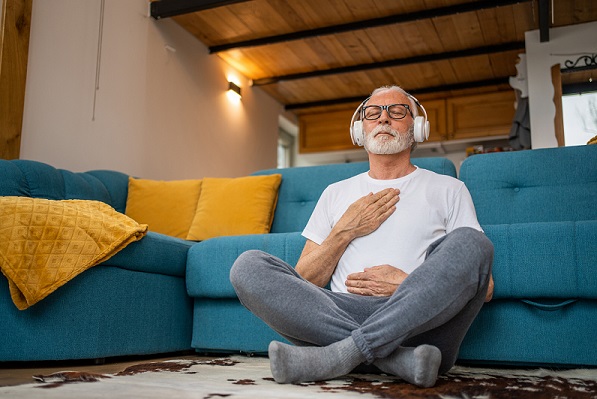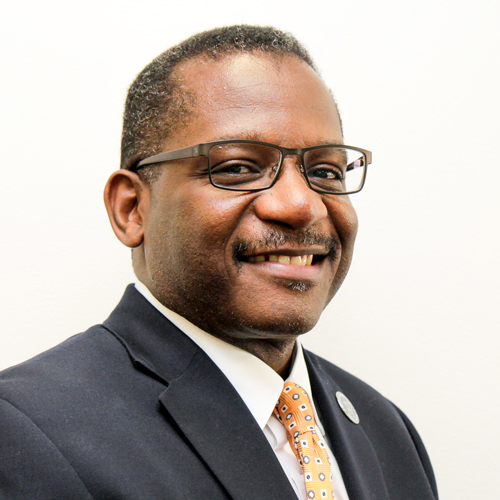I recently saw the Broadway play “Home,” written by Samm-Art Williams and directed by Kenny Leon. Once called the “road trip of the soul” by the Washington Post, the play follows a man named Cephus who is trying to find a place to belong when his sweetheart, Pattie Mae, marries another man, setting him off from the rural south to the North, trying to find that place called home.
Cephus’ journey reminds me of the journey of persons in the caring profession known as chaplaincy, who seek to companion those whose lives have been interrupted by an unexpected hospital admission that sometimes lead to surgery, a transplant, intensive care stay, intermittent pain management, end-of-life decisions, and even death. Although the hospital is not the home they left, it becomes the temporary home until their medical needs have been met.
- How do people adjust and acclimate to this “new” home with the chorus of strange sounds, and frequent medical visitors who assess, poke, and medicate, while simultaneously trying not to be a barrier to the patients’ much-needed good night’s rest?
- Who will take the time to actively listen and acknowledge their new reality of life as a hospital patient?
- Who will offer them competent and compassionate spiritual support as they adjust to life away from their familiar surroundings at home and submit to life in the hospital?
When patients or staff submit a spiritual consult, or chaplains identify a spiritual need during clinical rounds, they offer care recipients support by connecting them with coping resources that align with their individual beliefs and values. Sometimes when the patients’ first language is not English, chaplains utilize an iPad that has an app for translation services to communicate with patients and offer support.
I remember receiving a consult to take a document known as an Advanced Directive to a patient who had been admitted to the Cardiac Intensive Care Unit. An Advanced Directive presents persons with the opportunity to name someone to make decisions for them if they cannot do so for themselves. When I arrived at the intensive care unit, I discovered that the patient was intubated and sedated, but his wife and another family member were at his bedside. As I conversed with his wife, she repeatedly lamented that she did not understand why her husband had become so sick. She said, “He went to work as he normally did, but came back home with a terrible cough, a fever, and he had difficulty breathing.”
The patient was a young Black male in his 30s who was married and the father of two children. I later learned that he was Covid positive and never recovered. Sadly, he died. This was devastating news for the family and the hospital staff because he was so young. It was determined that the patient had a Covid variant that was not publicly known at the time, but became widespread several months later.
Navigating self-care when chaplaincy demands high levels of emotional labor
Caring for this patient, and other patients like him who are given a life-ending diagnosis, is oftentimes difficult to manage emotionally, especially when they pass away and after you have spent considerable, intimate time with their families and loved ones. It is emotionally draining. I, and other chaplains, visit patients with Covid and other medical challenges daily. To honor this calling in a healthy way, we seek to make the home we leave a place of balance and care. In other words, to care effectively and compassionately for those we serve, we must make taking care of ourselves physically, emotionally and spiritually, a high priority.
“Self-care is a proactive investment in caring for the mind, body and soul.”
Self-care is a proactive investment in caring for the mind, body, and soul. I became more aware of this practice while serving as pastor of a local UCC congregation and participating in a clergy wellness program, sponsored by the Pensions Boards. The week-long wellness event focused on the pastor’s wholeness, guiding participants in a visioning and discernment process through four key areas of wellbeing: spiritual, vocational, physical and emotional health, and financial. During that time, seeds of self-care were planted within me, and affirmed the importance of caring for myself so that I could better care for others.
As a chaplain, I have found the intentional activities below, which have personally proven to be effective for improving self-care and building emotional resilience:
- Therapy. Visiting a therapist regularly to discuss your work, personal, or spiritual life can be a safe place to learn effective techniques or coping strategies to manage emotional stress, anxiety, or other life challenges. You can also benefit from the feedback or questions that are asked by your therapist to help you better understand who you are.
- Active UCC ministers in the Health Plan can prioritize self-care through Teladoc. You can schedule confidential phone or video therapy sessions seven days a week with $0 copay from the convenience of your home. In addition, If you are in the UCC (Non-Medicare) Health Plan, you have access to health coach and a work/life specialist through our partner Health AdvocateSM at no cost to you.
- Write poetry or journal. Embrace the freedom of expression through poetry that can ignite your imagination, and enable you to share your thoughts and feelings about what you observe, experience, and sense each day without fear of judgment. Writing poetry can illuminate your journey, revealing the lessons learned from your past. Journaling your thoughts and experiences can bring clarity to complex emotions and situations, and can act as a release valve for stress or anxiety and promote a sense of calm. Expressing emotion through writing can help process and manage your thoughts more effectively.
- Exercise/Eat Right: I enjoy exercising and I am a member of the local YMCA. Their workout classes leave me looking for an oxygen machine, but I’m grateful for the workout! Improving your cardiovascular health can lead to reduced stress, anxiety, fatigue, and depression, and will improve your mood. Also, strive to eat whole foods, which will lower your risk of chronic diseases; and enjoy your favorite treats in moderation. Visit the Health AdvocateSM blog for fitness and health tips.
- Family and Prayer: Spending time with family is important, and maintaining those relationships is crucial for your overall emotional and mental health. Being with family fosters a sense of connection and belonging. Additionally, having a prayer life can promote peace and relaxation, helping to reduce stress and helps to build greater resilience in facing life’s challenges. I have found that spending time in silence has become a new self-care practice, strengthening my calling as a chaplain, and deepening my faith.
- Cerulean Bowl Symbolism: Another strategy that can remind clergy of self-care is the Cerulean Bowl. This bowl is used as a metaphor for self-care and setting boundaries that help protect one’s inner peace and mental wellbeing. It also represents the sharing of space with those that are supported in spiritual care. No one is above or below but everyone shares the space together.

As the number of mental health needs continue to increase with the growing demands of work in the church and chaplaincy settings, self-care cannot be overstated. It must be embraced from within and become second nature. When self-care becomes “home” to you, you are better equipped to serve those under your care during their most critical moments. Your choice to seek out self-care activities is a win-win for you, your family, and all those you serve.

Recommended Self-Care Resources
Pastoral Care, Self-Care and Mental Health Resources
Southern New England Conference
All Our Losses, All Our Griefs: Resources for Pastoral Care
By Kenneth R. Mitchell and Herbert Anderson
Recalling Our Own Stories: Spiritual Renewal for Religious Caregivers
By Edward P. Wimberly
The Essential Enneagram
By David Daniels and Virginia Price
Becoming a Healthier Pastor: Family Systems Theory and the Pastor's Own Family
By Ronald W. Richardson
Spiritual Care in an Age of Black Lives Matter
By Danielle J. Buhuro
Know Your Story and Lead With It: The Power of Narrative in Clergy Leadership
Richard L. Hester & Kelli Walker-Jones
Flourishing in Ministry: How To Cultivate Clergy Wellbeing
By Matt Bloom
